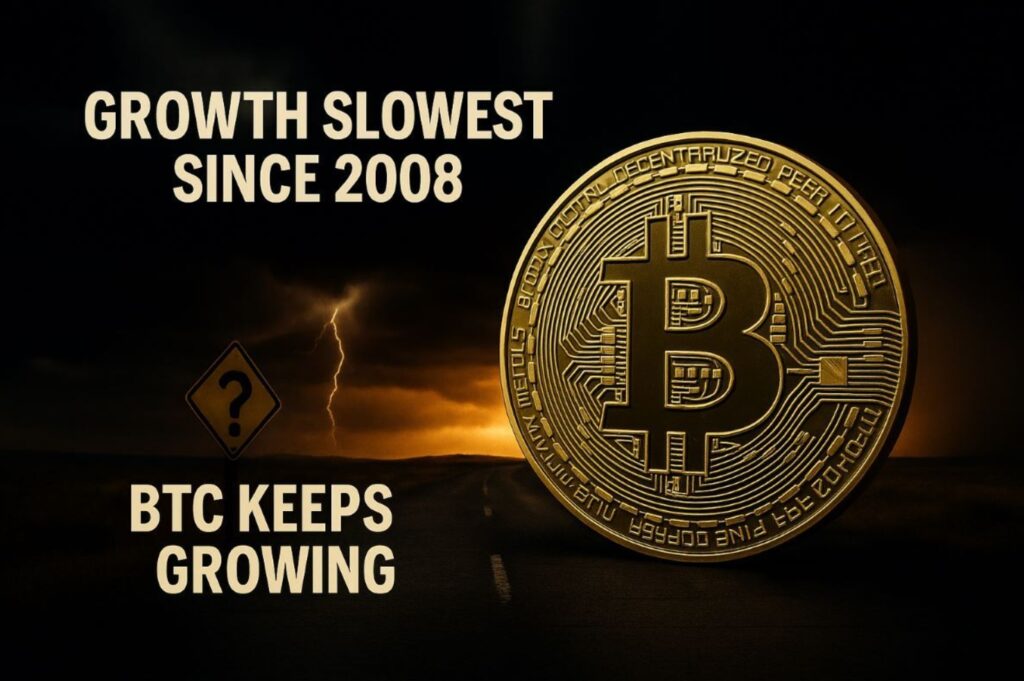In today’s rapidly changing economic landscape, the global economy faces significant challenges as growth rates continue to decline. While traditional markets struggle, the rise of cryptocurrencies, particularly Bitcoin, presents a compelling alternative with the potential to transform future financial systems. Understanding these trends will equip investors and policymakers to navigate a global economy increasingly reliant on digital assets.
Understanding Global Economic Trends and Bitcoin’s Emerging Role
Challenges in Global Economic Growth
Recent reports by the World Bank indicate a worrying trend in global economic growth, with projections dwindling to 2.3% for the upcoming years. This marks the weakest non-recession growth since 2008, exacerbated by escalating trade tensions and tariff wars, primarily driven by the United States. The impacts of these tariffs have been devastating, leading to an estimated 1.8% growth in global trade volumes, significantly below pre-pandemic levels.
Impact of Trade and Tariffs
The global trade landscape has experienced a consistent decline over the decades, from a robust 5.1% growth in the early 2000s to a mere 2.6% in recent years. Tariffs have intensified geopolitical uncertainties, leading to reduced investments and a significant decline in private sector confidence. Major economies such as the United States and the Eurozone are seeing rapidly diminishing growth forecasts, with the U.S. struggling to maintain a growth rate above 1.4%.
The Struggle of Developing Economies
Amidst these challenges, developing countries are facing severe economic hardships. Nearly two-thirds of emerging markets are stagnating below their average growth rates over the past decade. With per capita income failing to keep pace with population growth, regions like Sub-Saharan Africa and Latin America are on the brink of financial crises due to increasing debt levels and inflation.
Higher interest rates in developed countries further aggravate the situation, siphoning capital away from these vulnerable economies. These nations face an urgent need for structural reforms, increased infrastructure investments, and better access to global capital markets to avoid prolonged economic stagnation.
Bitcoin’s Rise as a Financial Powerhouse
Despite these global economic challenges, Bitcoin emerges as a viable alternative to traditional investment avenues. Historically, gold has been the primary safe haven asset. However, Bitcoin is gaining traction, achieving a remarkable 54% increase over the past year and capturing a market capitalization that, while only a fraction of gold’s, signifies its growing importance.
Bitcoin and Gold: A Parallel Growth Trajectory
Gold continues to see significant price increases, driven by investor anxiety, yet Bitcoin is not far behind. With its market cap reaching over $2 trillion, Bitcoin is increasingly viewed as a hedge not only against inflation but also against sluggish economic growth and system-wide risks. Its adoption is widespread, extending even to financially strained developing economies, illustrating its universal appeal.
The Rise of Institutional Investment in Crypto
The growing interest from institutions, as illustrated by increased adoption among financial advisors and significant inflows into Bitcoin ETFs, bolsters Bitcoin’s standing in the financial ecosystem. Cryptocurrency adoption among financial institutions has doubled, showcasing an intersection with traditional finance that highlights Bitcoin’s expanding influence.
Empowering Individuals with Cryptocurrency: Best Wallet ($BEST)
As Bitcoin and other cryptocurrencies gain momentum, having a secure and comprehensive crypto wallet becomes essential. Best Wallet, with its $BEST token, offers a robust solution for crypto enthusiasts. This innovative wallet provides high-level security features, a multi-wallet ecosystem, and the upcoming Best Card, enabling seamless crypto transactions.
The $BEST token enhances the utility of the wallet by lowering transaction fees and boosting staking rewards, making it an attractive option for those looking to actively engage with cryptocurrencies. As the market for non-custodial wallets grows, Best Wallet is poised to lead, offering a unique presale platform for identifying promising crypto investments.
The Potential of Bitcoin in a Struggling Global Economy
While Bitcoin alone cannot resolve the world’s economic challenges, it represents a pivotal asset in hedging against economic uncertainties. As traditional financial systems grapple with high debt levels and inflation, turning to decentralized digital assets like Bitcoin offers an alternative. Its potential to match gold’s market cap and emerge as the primary hedge asset in the next financial cycle will depend on ongoing adoption and market developments.
In navigating this complex economic landscape, thorough research and strategic decisions are paramount. While this is not financial advice, considering a secure crypto wallet could be a wise step in preparing for the future of a digital financial system.
Can Bitcoin Replace Gold as the Leading Safe Haven?
Bitcoin’s role as a digital asset with limited supply offers a parallel to gold, positioning it as a potential alternative safe haven. However, its volatile nature and regulatory challenges mean that investors should carefully evaluate their risk tolerance and investment strategies.
What Factors Are Driving Bitcoin’s Recent Surge?
Bitcoin’s recent growth is fueled by increased institutional adoption, economic uncertainties, and advancements in blockchain technology. Investor sentiment viewing Bitcoin as a hedge against inflation and systemic risks also plays a critical role in its price increase.
How Can Investors Mitigate Risks in Cryptocurrency Investments?
To mitigate risks, investors should diversify their portfolios, stay informed about market trends, and utilize secure platforms to manage their digital assets. Comprehensive research and awareness of market volatility are crucial in navigating the crypto investment landscape.
Ultimately, the rise of Bitcoin and its potential to redefine financial strategies in a globally challenged economy are noteworthy. As the world navigates these uncertain times, being informed and prepared becomes increasingly important for investors, policymakers, and individuals alike.

